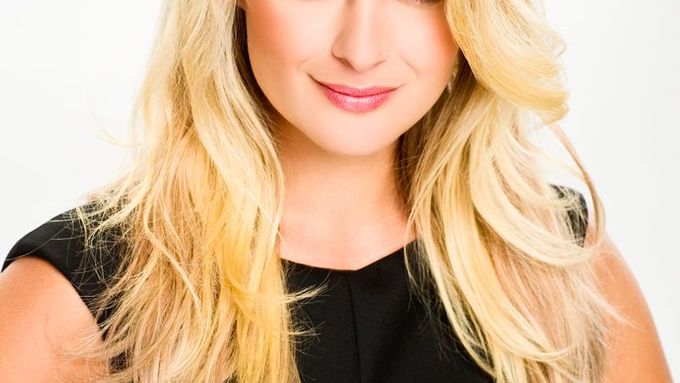Prague - Justinová, founder of Flying Hearts, a mail order bride agency in the Czech Republic, started her business in 2002. After two decades of economic growth, escaping from the former communist bloc is less of a priority for Czech women. Despite this, Justinova, one of a handful of marriage brokers in the region, says her business is stable.
"I thought [the business] has great potential, because at the time, when I started, there were only one or two companies. It is a business that is not limited by time," said Justinova, who is pictured on the agency's website sitting on a chair with her legs crossed dressed in a slinky black leather dress.
For the first eight months, Justinová headed to her office in tears because business was so slow, she said shaking her head while sipping on the vegetable soup she ordered for lunch.
Eventually, she started receiving calls and women registered on her website. Now, she limits her work to five male clients per month in order to give her personal attention to each client. Her success seems to reflect a trend in the mail order bride business.
There are at least seven of these agencies operating out of Prague alone. While two declined to speak, the rest agreed that their businesses have been growing or are stable.
"I think that's connected with the opening of borders of the European Union,"said Petr Pavlik, deputy chair of the gender studies department of Charles University in Prague. "State control eased up and these things became more open."
Professional conduct
After graduating from the University of Central Oklahoma in 2001 with a degree in international trade, Justinová worked for Hand in Hand, another mail order bride agency based in Prague. She said she became frustrated with what she called the owner's unprofessional conduct. So, she started her own company and pasted a picture of her slender body and long dirty blonde hair on the website to give it credibility.
"I think most of the women choose the company because of me," said Justinová, who was the second runner-up in the 1997 Miss Czech Republic pageant. "I am a publicly-known person and [clients] feel it is a legitimate guarantee if I am able to provide them with an introduction."
Her love-thirsty male clients (80 percent of whom are American) register on the website. They then usually receive an email instructing them to become a member by paying thousands of euros for dates. A client can choose to pay EUR139 (about $204) for 60 days of extended access to the online picture gallery, or up to EUR3,200 (about $4,690) for 20 dates.
Succsseful connection
Justinová works with the clients to form a list of potential matches, from the 2,000 women registered with her agency, with online pictures and short biographies as references. If the women agree to meet with he client, dates are set up; however, about 60 percent of the women refuse. Some say no because they are not satisfied with the client's looks, others with the client's profession.
It is then up to the client and the women to achieve a "successful connection," said Justinová.
"They are looking for future wives," said Justinová.
Her agency, along with others that provide Western men with a picture catalogue of Eastern European women to choose from, has been criticized by professional Czech women.
"It's disgusting," said Lenka Treglová, a journalist for Ona, a women's weekly supplement of the leading Czech newspaper Mladá Fronta Dnes, a leading Czech newspaper. Surprised that these agencies still exist, she continues, "I think it was a good business after the revolution because of the low self-esteem of Czech women, [but] now you don't have to sell yourself to some idiot."
Post-Revolution boom
After the fall of communism following the 1989 Velvet Revolution, mail order bride agencies across the region experienced a boom as women were sought to flee poverty and a proudly anti-feminist, according to Marta Kolářová, associate scholar at the Institute of Sociology in Prague.
"Poverty and unemployment can be a push-factor for women in the post-Soviet bloc to search for such an opportunity," said Kolářová. "Due to economic restructuring, lots of people lost their jobs that had been secure under communism."
However, the economic situation of the Czech has steadily improved. Now, The Czech Republic's $24,500 GDP per capita surpasses that of Portugal's, which has been a member of the European Union for 18 more years than the Czech Republic.
Czechs, Russians, Ukrainians..
Justinová, originally from Olomouc, a town about 167 miles from Prague, is the owner of another company called Human Hair, a company importing hair extensions in the Czech Republic, and regularly appears in television commercials on the side. She lives with her boyfriend of almost four years in Prague. They do not discuss their finances with one another.
Unlike Justinová, the average woman registered on her site is looking for someone to establish a serious relationship with or has already been divorced with children. They are usually in their late 20s to mid-30s.
Justinová does not recommend her clients to pursue the younger women (18-23 years old) because they are usually flighty. She also warns potential male clients of Russian and Ukrainian women in a section on the Flying Hearts website titled "Russian vs. Czech."
"Czech women have closer ties to Western culture in terms of their education, culture, beauty and health, and English language skills," it claims.
Justinová further asserts that Russian and Ukrainian women are trying to flee their countries for financial reasons. Czech women, on the other hand, do not register for the same reasons.
"Czech ladies are not too desperate for money," said Marketa Zbořilová, manager of Planet Romance, an agency based in Prague established and in 1999. "The most important [trait] is the character in the male, and chemistry."
Two thousand reasons
Gabriela, a 27-year old physician, is registered with Justinová's agency. In her picture, she is wearing a deep V-neck red blouse and white crocheted skirt standing with her hands crossed and a sheepish smile. She writes in her ad that she is looking for a, "tolerant, gentleman." Among the hundreds of women registered, traits such as faithfulness, tolerance and gentleness are listed as the characteristics of their ideal man.
She declined to disclose the contact information of other bachelorettes for further interviews, stating they might be too embarrassed.
"Two thousand women have two thousand reasons why they joined," said Justinová of the women who attempt to find future partners through her agency. "Of course, there are some women that do it for money, but I also have successful females registered."
American in his 40s
Justinová's mail order bride agency is a stark difference from the international dating services. She does not ask for the women to pay. The man that contact her are looking for brides, not mere dating. Her agency also concentrates on the selection of a particular nationality's women.
"A majority of my male clients, because they pay a lot of money, they have high social status," said Justinová. "They don't want to put their profile online so that anyone can see they are searching for a partner in a dating service."
Her average male client tends to be an American in his 40s to 50s and financially stable. She says they are usually self-employed, a CEO, doctor or lawyer. According to the U.S. Immigration and Naturalization Service, around 6,000 American men try to find brides through these international marriage brokers annually. There are about 100,000 to a 150,000 women around the world who advertise themselves for marriage. They mainly come from Southeast Asia and Russia and other countries of the former Eastern bloc.
"I heard from a [male] client that he wants someone who is not too sophisticated, someone who is family-oriented," said Zbořilová. "They want someone to cook at home where they don't need housekeepers, because American women are so based on their careers."
Czech women are no cleaners
Justinová tries to repel these types of men. She explains to her clients that it is up to the woman if she wants to meet them. The women are not at their disposal.
"Czech women are a little bit feministic," said Justinová. "They have no reason to come to the United States and be cleaning ladies for the husbands."
However, she does believe that women do have a certain traditional feminine role to fill.
"I think Czech women like to be independent, make their own money, but they still appreciate someone who will make the important decisions," said Justinova. "We are feministic, but not so much as in the United States."
This type of mentality came after the revolution when the first wave of dissidents returned to settle in the country. They came back from Western Europe and America with ideas of how to run a democracy. According to Jitka Kolářová, project coordinator at the Gender Institute in Prague, they chose to leave one thing behind—feminism. They did not want their women corrupted by the Western ideals of a woman more successful than her male counterpart.
"In the 1990s, feminism was a bad word," said Kolářová. "Saying you're a feminist meant you're an ugly woman with bad relationships with men. There were really strong stereotypes."
Justinová agrees with these stereotypes. She is aware that the men that come to her for business are seeking women unlike those in the United States.
"Those that from the West have an automatically higher status than those in the East," said Marta Kolářová. "There is an ethnic imbalance combined with gender inequalities. It is assumed that men should be better off than women and this makes it possible for American men to 'buy' these women."
This story was originally published by the Prague Wanderer, a web-zine run by New York University students in Prague, Czech Republic.
Deena Sami is a third-year student at New York University studying journalism and Middle Eastern and Islamic studies. She is from Orange, California.













